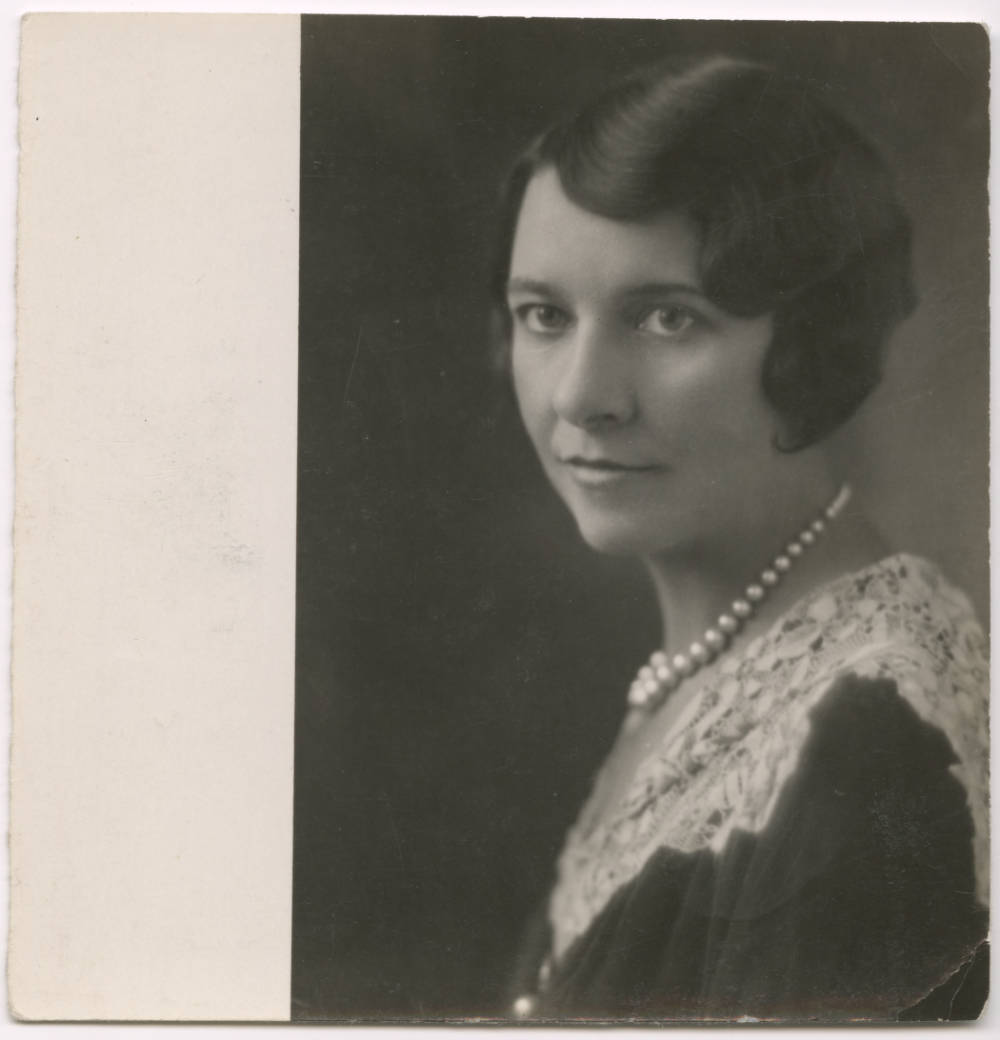Sources for Research: Olive “Polly” Matthews Stone, Radical Rural Sociologist
by Jaycie Vos, Coordinator of Collections, Southern Oral History Program, Center for the Study of the American South, University of North Carolina at Chapel Hill
Olive “Polly” Matthews Stone (1897-1977) was a sociologist and advocate for social welfare, civil rights, and interracial relations in the South. Her life and career—with a focus on radical politics and social justice in rural societies, particularly during the 1930s—have largely been left unexplored, but the Southern Oral History Program and the Southern Historical Collection at the University of North Carolina at Chapel Hill are pleased to present recently digitized oral histories and manuscript materials that are now available online for researchers worldwide.
In a series of eight in-depth oral history interviews conducted by Sherna Berger Gluck between March and November 1975, Stone discusses her background, education, and involvement with numerous social causes and organizations. She speaks at length about her family and childhood in Alabama, life as an unmarried woman, the evolution of her ideas about race and social justice over her life, her experiences teaching and working with African Americans in the rural South, her research on tenant farming, and her advocacy of the rights of sharecroppers and renters in cooperation with tenants’ unions. Stone describes her work with the Highlander Folk School, the Committee for People’s Rights, the Southern Conference for Human Welfare, and the Southern Negro Youth Congress, as well as such liberal causes as the anti-lynching campaign, throughout the 1930s and early 1940s. She also discusses her work for the Federal Bureau of Family Services in the 1940s and her tenure in the School of Social Welfare at the University of California at Los Angeles from the 1940s until her retirement in 1964.
To read the full transcripts from these rich interviews, see: G-0059-1, G-0059-2, G-0059-3, G-0059-4, G-0059-5, G-0059-6, G-0059-7, G-0059-8.
The Olive M. Stone Papers (# 04107) contain diverse and varied materials from throughout Stone’s personal and professional life. Topics of particular interest in correspondence files include Stone’s “Alabama Farmer” research with the Tennessee Valley Authority in 1934, anti-lynching efforts, her international travels with the Fellowship of Reconciliation, the Negro-White Conference at Shaw University in 1934, and the Institute of Race Relations at Swarthmore College in 1934. Notable correspondents include Katharine DuPre Lumpkin, Virginia Durr, Howard Kester, Arthur F. Raper, Sam H. Franklin Jr. of the Delta Cooperative Farm, and officers of the American Friends Service Committee. The collection also includes subject files from Stone’s research projects and items from organizations with which she was involved, such as a study of folk life and cultural change in Gee’s Bend, Alabama, and pamphlets and reports from the Southern Committee for People’s Rights (1934-1937). There are a number of photographs of Stone and her friends and family, ranging from 1890 to 1957.



Pingback: Rural Women’s Studies Wednesdays Summer Round-Up | Rural Women's Studies